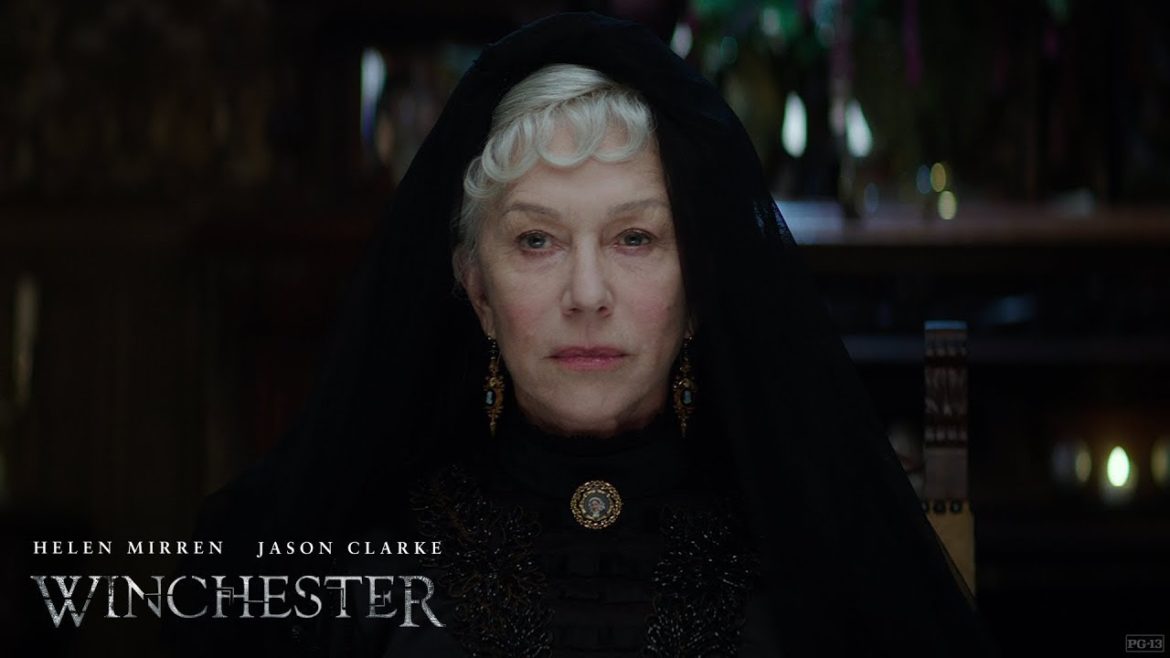TL;DR
Winchester - House of Ghosts dives into the legend of Sarah Winchester and her famously bizarre mansion. The film follows a psychiatrist tasked with assessing Sarah's sanity amidst claims of hauntings. While the premise is intriguing and Helen Mirren delivers a solid performance as Sarah, the movie leans heavily on predictable jump scares and struggles to develop its characters, leaving audiences detached from the unfolding paranormal events. The pacing feels slow, and a lack of audience investment prevents the suspense from truly landing. Despite its shortcomings, the film's historical setting is a highlight, sparking curiosity about the real Winchester Mystery House. Ready to see if this haunted house tale is worth the visit? Read the full review.
Winchester – House of Ghosts could be interpreted as a 99-minute advertisement for the real Winchester Mystery House, located in San José, California. The core story revolves around the house built by Sarah Winchester, the widow of the Winchester Arms magnate, and the legend that it is haunted. The house’s architecture is notably unconventional, boasting over 160 rooms, staircases leading directly into ceilings, and windows in the floor, seemingly lacking any logical design. Sarah Winchester’s motivations for the construction, according to the lore, were driven by communications with spirits.
Dr. Eric Price (Jason Clarke) is commissioned to assess the mental state of Winchester Arms heiress, Sarah Winchester (Helen Mirren). Living in her sprawling mansion outside the city, she frequently alludes to paranormal activity, prompting concern from the company’s management regarding her sanity. The property is a perpetual construction site, with building activity occurring constantly. Upon his arrival, Eric discovers the validity of Sarah’s claims regarding the presence of ghosts and finds himself playing a pivotal role in the unfolding events.
The German directing duo, Peter and Michael Spierig, are at the helm of Winchester – House of Ghosts. With previous experience in the horror genre, their prior project was Jigsaw, a film in the Saw franchise. Without having seen their earlier work, this review focuses solely on the present film. The film relies heavily on familiar “jump-scare” tactics common in many horror productions. Similar to issues noted in a review of Insidious 4, the film’s suspense diminishes significantly in the third act. While the premise holds potential, the narrative’s pacing feels prolonged over its 99-minute runtime, and a crucial element is lacking: audience investment in the characters. In successful horror films, viewers empathize with the characters; however, this film struggles to create a connection, even with a mother and son whose fate should elicit concern.
Jason Clarke portrays Dr. Eric Price as a flawed protagonist. While his off-screen persona is unknown, his on-screen presence often projects an unsympathetic quality. This casting choice is arguably fitting, as Eric Price is not presented as a traditional hero. He is depicted as an opium user, grappling with alcoholism and clinical depression – a character wrestling with his own demons. His impaired state initially blinds him to the pervasive spectral presence within the house. While Clarke is a capable actor, eliciting sympathy for his character proves challenging.
Helen Mirren delivers a commendable performance as Sarah Winchester, making the most of a role that ultimately lacks depth. While the character offered ample opportunity for exploration, the film fails to fully develop her, leaving the audience disconnected from her motivations and lacking a sense of genuine stakes as the narrative progresses.
The supporting cast performs adequately within the confines of their roles, but the overall script and character development are lacking. Winchester – House of Ghosts incorporates numerous “jump-scare effects”, employing sudden appearances and predictable mirror-based illusions. A rifle cartridge is established as a significant plot device, repeatedly referenced before gaining importance in the final act. The film then awkwardly inserts an extended flashback, redundantly explaining the bullet’s significance, suggesting a lack of confidence in the audience’s recall. However, the film’s strength lies in its period setting. The 1906 backdrop offers a refreshing visual aesthetic, a less common era in film, and piqued my interest in visiting the actual Winchester Mystery House. Perhaps, that was the intended effect.
